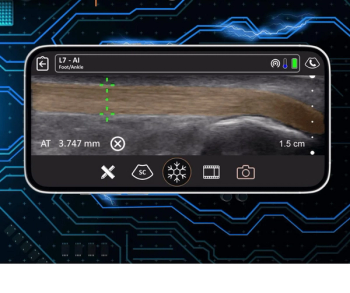
In what is reportedly the first Food and Drug Administration (FDA) 510(k) clearance for the use of artificial intelligence (AI) for musculoskeletal ultrasound, the model provides automated measurements of tendons in the knee, ankle, and foot.

In what is reportedly the first Food and Drug Administration (FDA) 510(k) clearance for the use of artificial intelligence (AI) for musculoskeletal ultrasound, the model provides automated measurements of tendons in the knee, ankle, and foot.
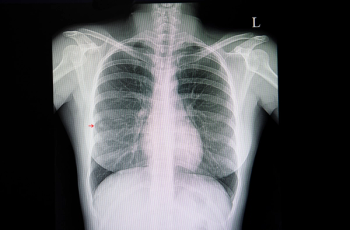
In an external validation data set for a deep learning bone-suppressed (DLBS) model, researchers found that adjunctive use of the DLBS model led to a nearly 15 percent increase in sensitivity for detecting pulmonary nodules on chest X-rays in comparison to radiologist assessment.
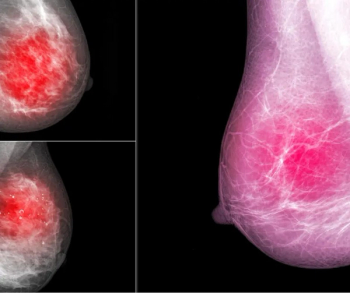
In a review of 22 studies and data from over 132,000 women with dense breasts and negative mammography exams, researchers found that magnetic resonance imaging (MRI) was superior to digital breast tomosynthesis, handheld ultrasound and automated whole breast ultrasound for the detection of breast cancer.
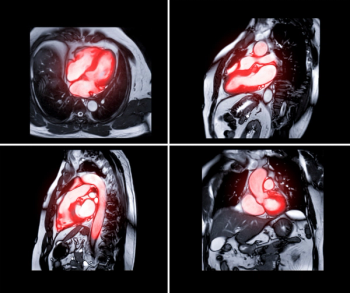
In a prospective study of over 600 patients, researchers found that magnetic resonance imaging (MRI) had no serious adverse effects upon the detection of tachyarrhythmias with non-MRI conditional implantable cardioverter defibrillators (ICDs).
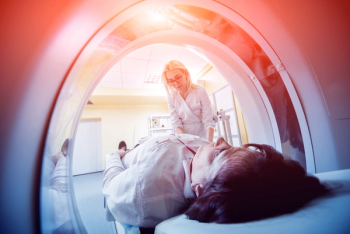
Researchers showed that adjunctive use of a deep learning algorithm resulted in an eight percent increase in sensitivity and a nearly 10 percent increase in specificity for differentiating between colon carcinoma and acute diverticulitis on computed tomography (CT) scans.

In a new survey, 83 percent of radiology residents agreed that artificial intelligence/machine learning (AI/ML) should be part of their curriculum but approximately 24 percent of residents said there are currently no AI/ML educational offerings in their residency program.

When you’re asked to review an X-ray for a patient who already had follow-up imaging, do you consider the results of follow-up imaging or evaluate the X-ray with fresh eyes?

Catch up on the top radiology content of the past week.
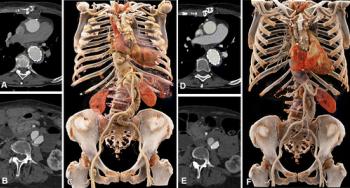
Preliminary research suggests the use of photon-counting detector computed tomography (CT) may facilitate a 25 percent reduction of iodinated contrast media (ICM) in comparison to energy-integrating detector CT for angiographic imaging of the thoracoabdominal aorta.
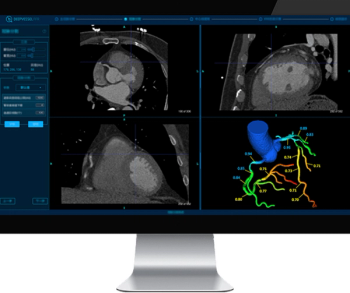
Employing deep learning capabilities, the DeepVessel FFR reportedly provides enhanced non-invasive evaluation of coronary arteries through semi-automated analysis of coronary computed tomography angiography (CCTA) imaging.
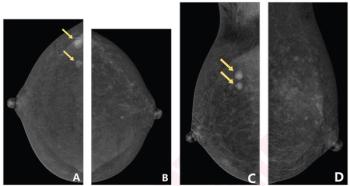
For premenopausal women with regular menstrual cycles, researchers have found a significant association between the timing of menstrual cycles and the degree of background parenchymal enhancement (BPE) on contrast-enhanced mammography (CEM).
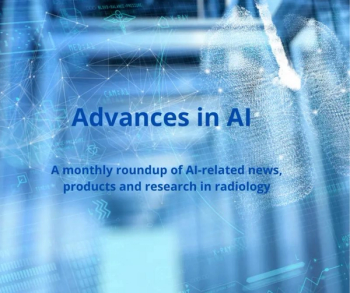
Catch up on the top AI-related news and research of the past month.
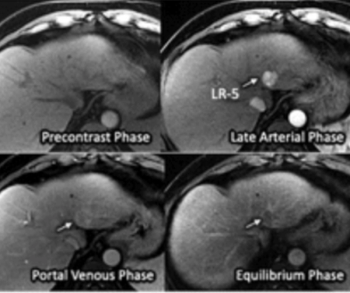
In a multicenter study involving nearly 300 patients, researchers found that abbreviated magnetic resonance imaging (MRI) had a sensitivity rate of 88.2 percent and a specificity rate of 89.1 percent for detecting early-stage hepatocellular carcinoma (HCC).

In a recent video interview, Amar Kishan, M.D., discussed a new study that demonstrated significant side effect reduction when utilizing magnetic resonance imaging (MRI) guidance instead of computed tomography (CT) guidance for stereotactic body radiation therapy (SBRT) to treat localized prostate cancer.

Review the case study and test your knowledge to make the correct diagnosis.

When looking for a doc for your own health care needs, do you opt for a colleague, the closest in-network option or someone on the same page with your perspective on health care?
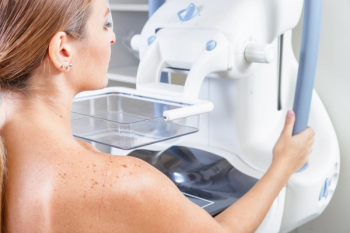
In a new survey that examined perceptions of breast cancer risk among more than 1,800 women who had a recent mammogram, 65 percent noted that being overweight or obese was a greater risk factor than breast density, and over a quarter of those interviewed noted they were not aware that they could reduce their breast cancer risk.

Catch up on the top radiology content of the past week.

Noting the significant administrative fees for the Independent Dispute Resolution (IDR) process of the No Surprises Act and onerous restrictions that have led to a nearly “non-existent” use of batching of disputed claims in radiology, the American College of Radiology (ACR) has sent formal recommendations to the United States Departments of Health and Human Services, Labor, and Treasury for addressing these issues.
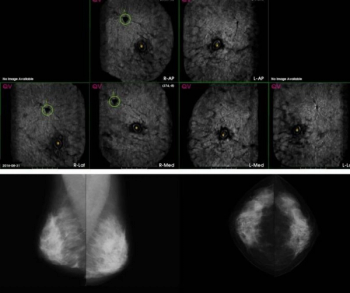
Emerging research suggests combined artificial intelligence (AI) assessment of digital mammography and automated 3D breast ultrasound provides enhanced detection of breast cancer in women with dense breasts and may be a viable alternative in areas where radiologists are scarce.
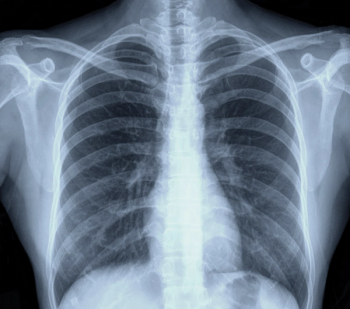
In a study involving patients who presented to emergency departments with acute chest pain, a deep learning model demonstrated significantly improved prediction of aortic dissection and all-cause mortality and indicated that additional pulmonary and cardiovascular testing could be deferred in seven times as many patients as suggested by conventional risk factors and testing measures.
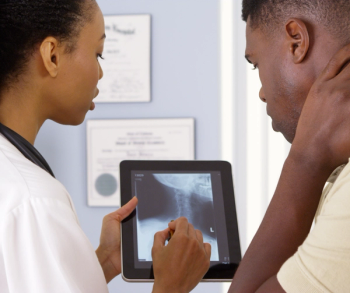
In a provocative new article, radiology researchers discuss the impact of social determinants of health (SDoH) upon access to care and patient outcomes, and present strategies within the realms of radiology education, research, clinical care, and innovation that may help mitigate health-care disparities.

Review the case study and test your knowledge to make the correct diagnosis.
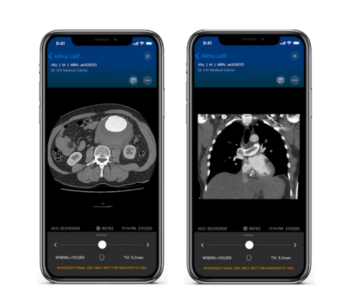
The artificial intelligence (AI)-enabled Viz™ Vascular Suite reportedly allows automated detection of vascular conditions, shown on computed tomography (CT) and other imaging modalities, and facilitates timely triage among interdisciplinary teams.
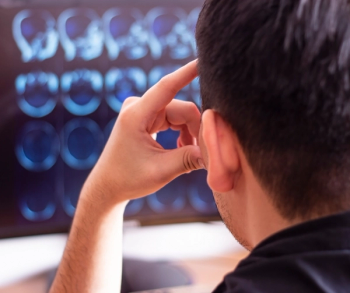
Acknowledging the repetitive reality that accompanies productivity incentives and seemingly extraneous verbiage to satisfy certain insurance requirements in radiology, this author has developed an appreciation for filler-free brevity and quiet.

Catch up on the top radiology content of the past week.
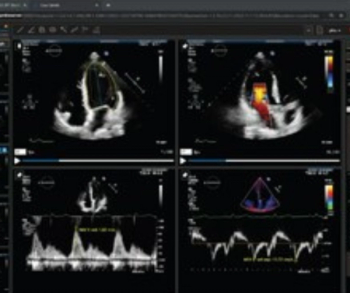
CAAS Qardia 2.0, an updated version of the CAAS Qardia echocardiography software platform, reportedly incorporates artificial intelligence (AI)-enabled workflows, and provides enhanced imaging and analysis of key cardiac measures.

In the second part of a recent interview, Nina Kottler, M.D., M.S., discussed keys to evaluating the potential value of artificial intelligence (AI) systems and emerging developments with AI that were discussed at the recent Radiological Society of North America (RSNA) conference.
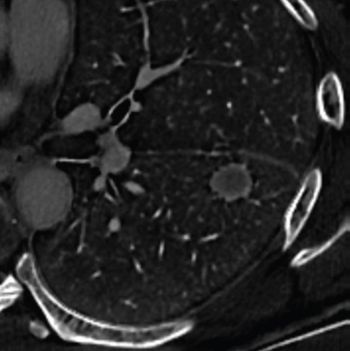
In comparison to primary lung cancer, pulmonary metastases had a 33 percent higher frequency of ring-like peripheral high iodine concentration on dual-energy computed tomography (DECT), according to a new retrospective study.
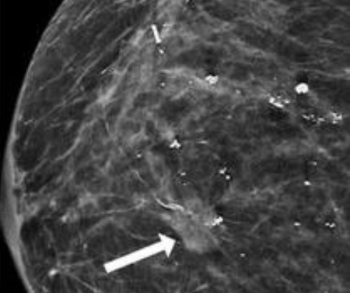
While breast cancer imaging guidelines recommend annual screening for five years after treatment for ductal carcinoma in situ (DCIS), a new study of over 12,000 women found that only 52 percent had consistent surveillance screening with researchers noting disproportionately lower follow-up imaging rates for Black and Hispanic women.